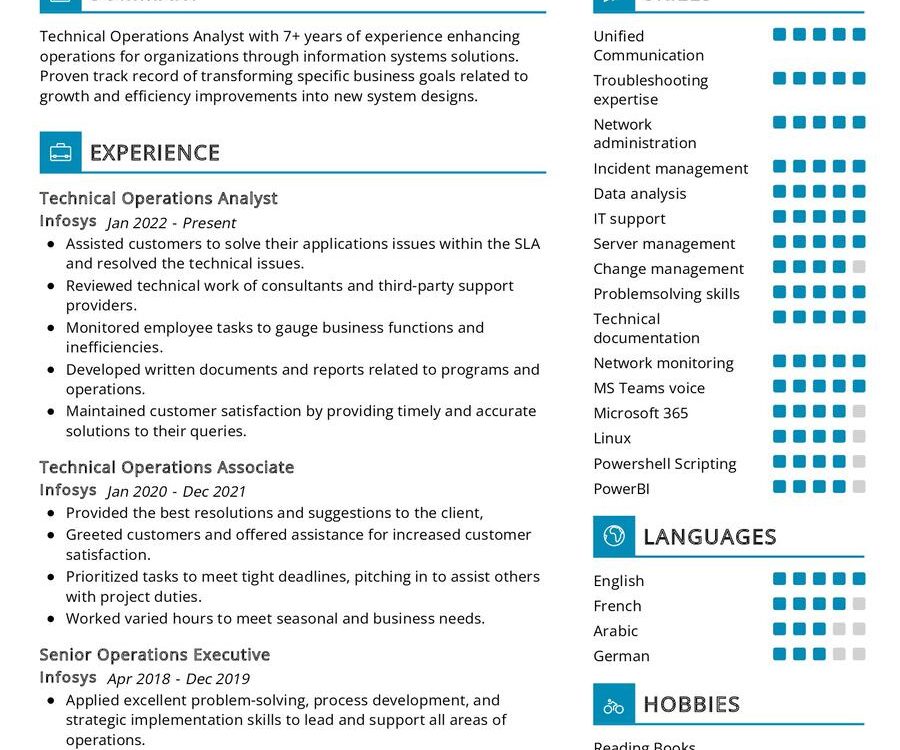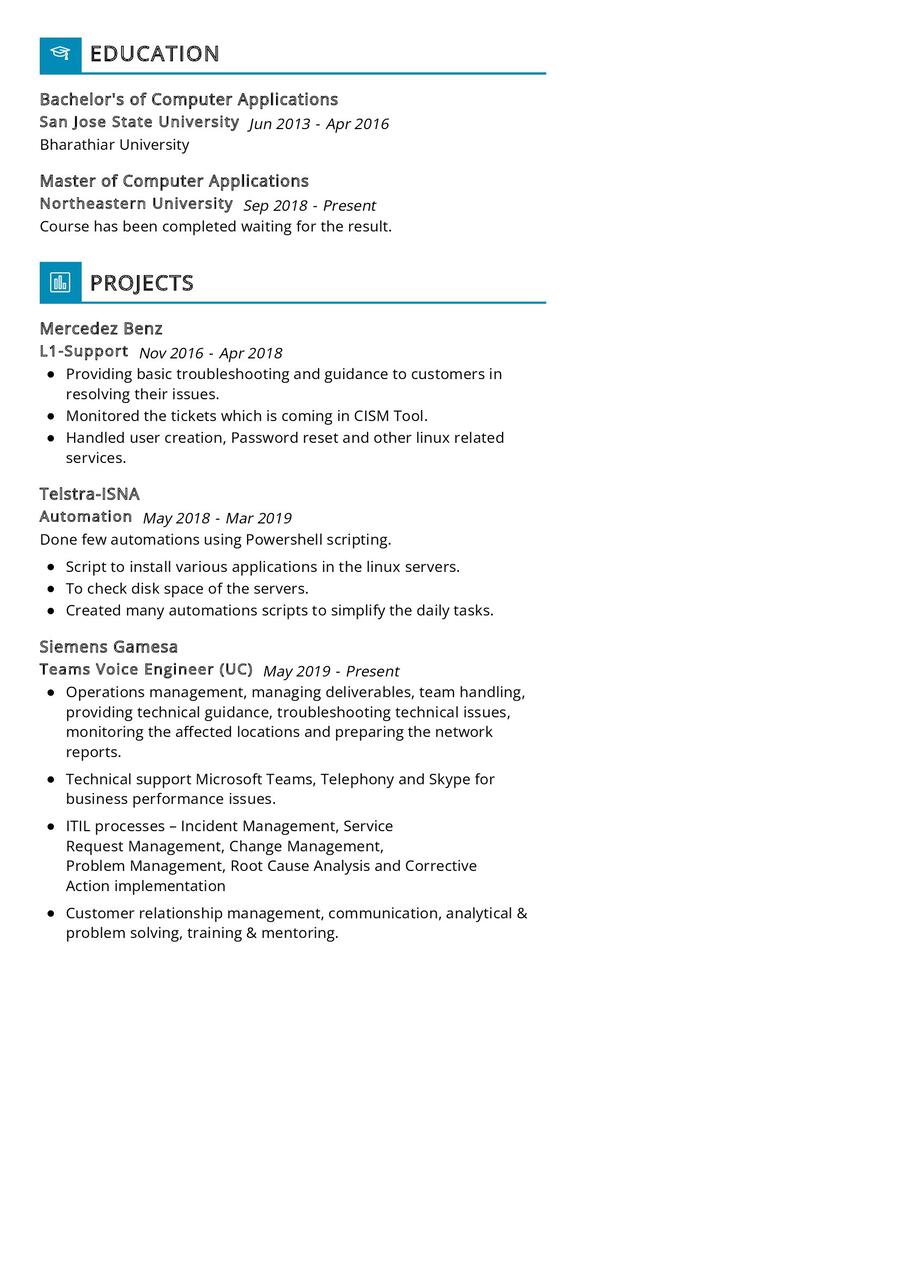Understanding the Role of a Technical Operations Analyst
In the ever-evolving landscape of technology, the position of a Technical Operations Analyst has emerged as a critical role in organizations worldwide. This role demands a unique blend of technical expertise and analytical prowess to ensure seamless operations and optimal performance of IT systems. Let’s delve into the multifaceted responsibilities and requirements of a Technical Operations Analyst, a position that plays a crucial role in the success of an organization.
Key Responsibilities of a Technical Operations Analyst
A Technical Operations Analyst is at the forefront of maintaining and optimizing IT infrastructure. Their responsibilities span a wide range of tasks essential for the smooth functioning of an organization’s technical landscape:
- Monitoring and analyzing system performance to identify and resolve issues proactively.
- Collaborating with cross-functional teams to implement and maintain IT systems and applications.
- Ensuring the security and integrity of data through regular system audits and backups.
- Responding to technical incidents and providing timely resolutions to minimize downtime.
- Implementing and updating IT policies and procedures to enhance system reliability.
- Collaborating with vendors to assess and implement new technologies to improve operations.
Each responsibility is a crucial thread in the fabric of a Technical Operations Analyst’s role, contributing to the overall efficiency of an organization’s IT ecosystem.
Requirements for a Technical Operations Analyst Role
Embarking on a career as a Technical Operations Analyst requires a combination of education, technical skills, and problem-solving abilities. Here are the key requirements for this role:
- A Bachelor’s or Master’s degree in Information Technology, Computer Science, or a related field.
- Proven experience in IT operations, showcasing a solid foundation in system administration.
- Proficiency in scripting languages like Python or PowerShell for automation tasks.
- Knowledge of ITIL (Information Technology Infrastructure Library) best practices.
- Excellent analytical and troubleshooting skills to address complex technical issues.
- Strong communication skills to collaborate effectively with team members and stakeholders.
Continuous learning and staying updated on the latest technologies are essential for a Technical Operations Analyst to thrive in this dynamic field.
Crafting a Standout Technical Operations Analyst CV
Your CV is your gateway to securing a position as a Technical Operations Analyst. To make it stand out, consider the following tips:
- Highlight specific projects where you’ve successfully resolved critical technical issues.
- Showcase your proficiency in automation tools and scripting languages.
- Quantify your achievements, such as reducing system downtime or improving response times.
- Include relevant certifications, such as ITIL or vendor-specific certifications.
- Personalize your CV for each application, emphasizing skills and experiences that align with the job description.
Your CV is a reflection of your skills and accomplishments, so make sure it effectively communicates your value as a Technical Operations Analyst.
Technical Operations Analyst CV Summary Examples
Your CV summary is your opportunity to make a strong first impression. Craft a compelling summary that encapsulates your experience and strengths:
- “Detail-oriented Technical Operations Analyst with a track record of optimizing IT systems and reducing downtime through proactive monitoring and troubleshooting.”
- “Results-driven IT professional with expertise in implementing and maintaining robust IT infrastructures, ensuring data security and system reliability.”
- “Experienced Technical Operations Analyst adept at collaborating with cross-functional teams to enhance overall IT performance and efficiency.”
Your CV summary sets the tone for the entire document, so make it impactful and tailored to the specific role you’re applying for.
Building Your Technical Operations Analyst CV Experience Section
Your experience section is the core of your CV, detailing your professional journey and accomplishments. Here are examples to guide you:
- “Led a team in implementing automated monitoring systems, resulting in a 30% reduction in system downtime.”
- “Successfully managed the migration of critical applications to a cloud-based environment, improving overall system performance.”
- “Collaborated with cybersecurity experts to conduct regular system audits, ensuring compliance with industry standards.”
Each experience listed should showcase your impact on the organization and highlight your ability to address challenges and drive positive outcomes.
Education Section for Your Technical Operations Analyst CV
Your educational background is a key component of your CV. List your academic achievements and relevant certifications:
- Master of Science in Information Technology, XYZ University, 2017.
- Bachelor of Science in Computer Science, ABC University, 2015.
- ITIL Foundation Certification, 2018.
Your education section demonstrates your commitment to learning and your foundation in the field of information technology.
Skills Every Technical Operations Analyst Should Include in Their CV
Your skill set is the toolbox that showcases your abilities. Include both technical and soft skills to present a comprehensive picture of your capabilities:
Technical Skills:
- System Administration
- Automation Scripting (Python, PowerShell)
- Network Security
- ITIL Best Practices
- Cloud Technologies
Soft Skills:
- Analytical Thinking
- Effective Communication
- Problem-Solving
- Team Collaboration
- Adaptability
Each skill listed should be tailored to reflect your proficiency and its relevance to the role of a Technical Operations Analyst.
Common Mistakes to Avoid in Your Technical Operations Analyst CV
As you craft your CV, steer clear of common mistakes that can hinder your chances of securing the desired position:
- Avoid using generic phrases; instead, provide specific details about your achievements and contributions.
- Ensure a balance between technical jargon and layman’s terms to make your CV accessible to a broader audience.
- Proofread your CV thoroughly to eliminate errors and maintain a professional image.
- Include a cover letter to complement your CV and provide additional insights into your qualifications and motivation for the role.
Each mistake can impact the effectiveness of your CV, so take the time to review and refine your document before submission.
Key Takeaways for Your Technical Operations Analyst CV
As you wrap up the process of crafting your Technical Operations Analyst CV, keep these key points in mind:
- Highlight your technical expertise and problem-solving abilities prominently.
- Showcase specific achievements and quantify your impact on system performance and efficiency.
- Tailor your CV for each application, emphasizing skills and experiences relevant to the specific job description.
- Include a well-crafted CV summary to capture the attention of potential employers from the outset.
Your CV is your professional narrative, so make it a compelling story of your skills, achievements, and potential as a Technical Operations Analyst. Best of luck in your job search!
Finally, feel free to utilize resources like AI CV Builder, CV Design, CV Samples, CV Examples, CV Skills, CV Help, CV Synonyms, and Job Responsibilities to create a standout application and prepare for the Technical Operations Analyst job interview.



